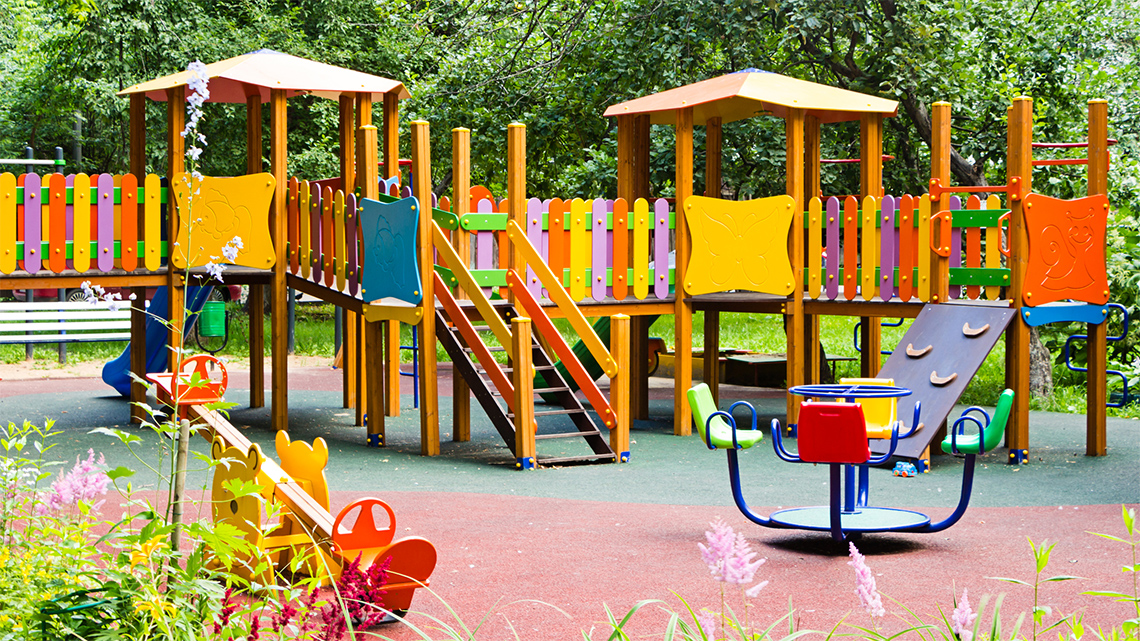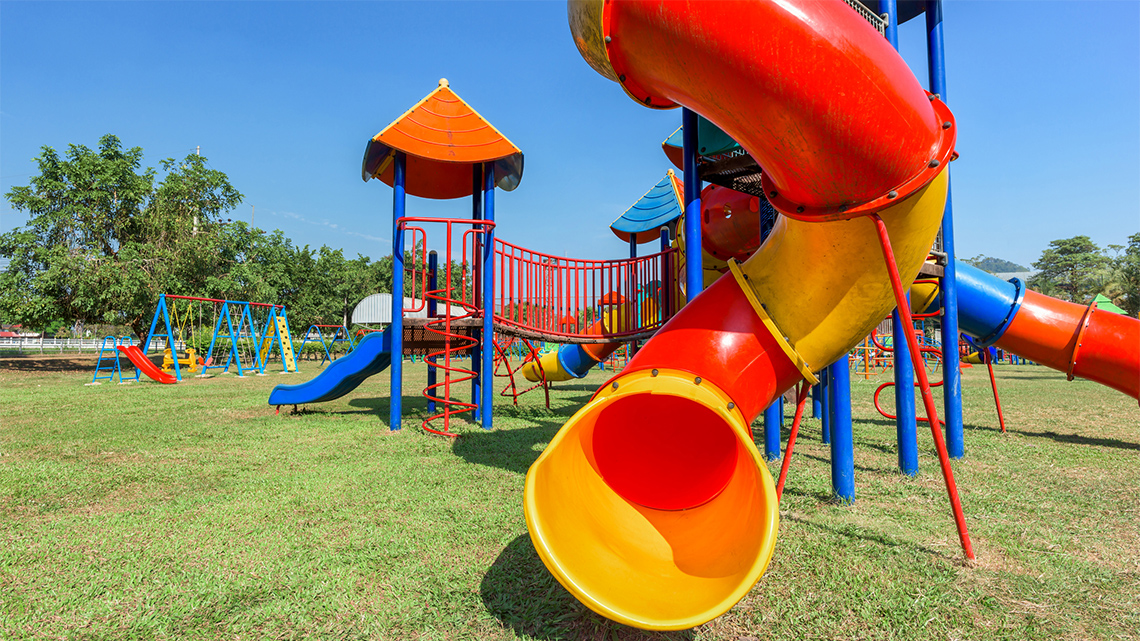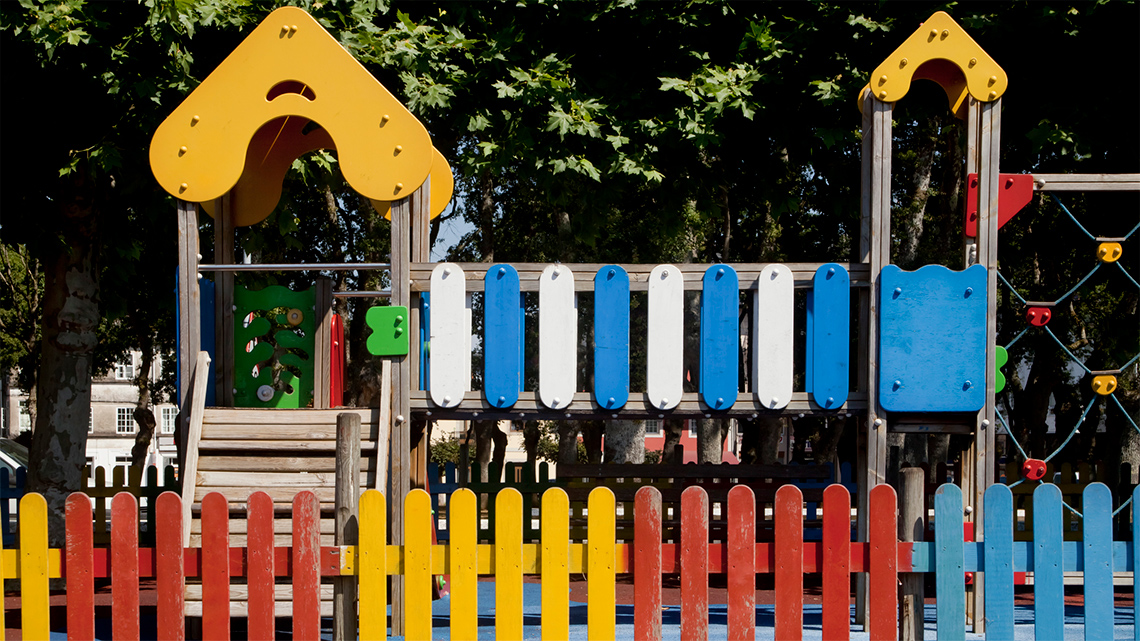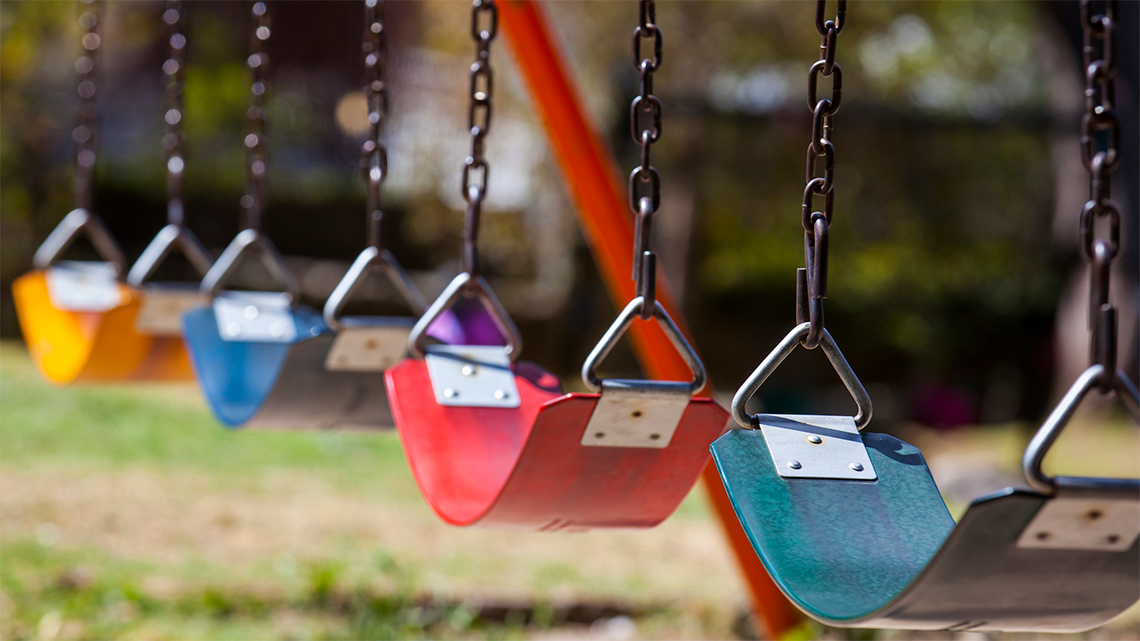Minds On
Let’s take a trip to the playground
Explore the photos of the playgrounds below or think about a playground you have visited before. List all the shapes and patterns you find. Then, ask yourself:
- What is in the photo that makes this a pattern? What is different?
Record your findings using a voice recorder, speech-to-text, or writing tool.
Student Success
Think-Pair-Share
Now that you have taken some time to observe patterns and shapes in playgrounds on your own, share your findings with a partner if possible.
Note to teachers: See your teacher guide for collaboration tools, ideas and suggestions.
Action
Where do we find patterns?
Identify and describe any patterns that you find in the following image of people or around you.

Exploring patterns in flags and pennants
Explore these sets of flags and pennants.
What kinds of patterns do you notice? What is repeated to make a pattern? What is different?
Consider and track the types of patterns you find. Record your answers using a method of your choice.
Four world flags are in the images below. What patterns do you notice in each flag? What shapes and/or colours are repeating?
Flag of Canada
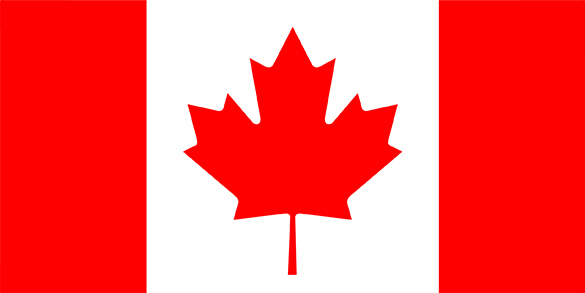
Flag of France
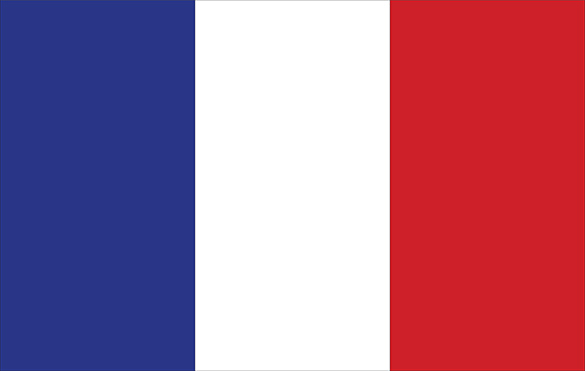
Flag of South Korea
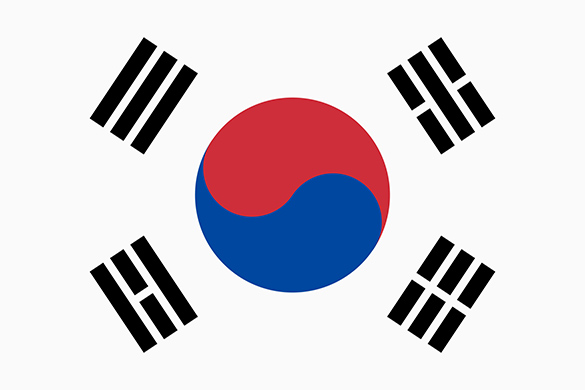
Flag of Jamaica
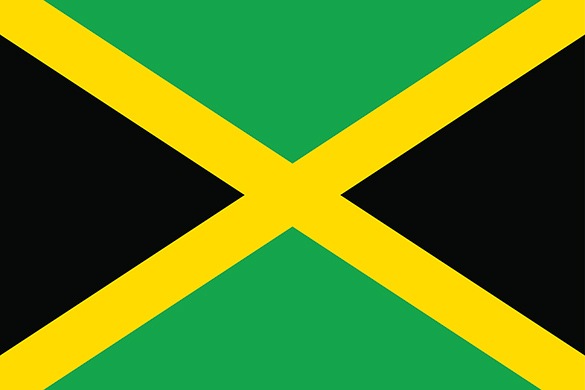
After you have explored the pennants, press the ‘Answer’ button.
Shape (triangle) is the same. Attributes like colour or pattern are repeated.
Orientation patterns
Orientation means the position of something, like the way the arrows appear in the following image.

Consider how the arrows are positioned. Describe the patterns. What is the same about the arrows? What is different? Record your answers using a method of your choice.
After responding to the questions, you may press the ‘Answer’ button below.
The arrows are all the same shape and the same colour. The difference is they are pointing in different directions.
Now, create your own pattern using the arrows.
What is the part that repeats in your pattern?
Consolidation
Exploring patterns in clothing
You can find all kinds of shapes and patterns on clothing. Explore the following clothing fabrics, or your own wardrobe, for patterns and shapes. You will be creating your own pattern after, so be sure to record any ideas you have.
Clothing Fabric Patterns
Create your own geometric pattern
A geometric pattern is a pattern made up of shapes and lines.
Now that you have explored some geometric patterns through pennants and clothing, it’s your turn to design your own geometric pattern by drawing/tracing shapes on a blank page, or using the following pattern creator.
You can also record a description of how you would design your pattern.
You may trace objects found around the house to build your pattern. E.g. bottom of a soup container or a toilet paper roll.
Record why you chose the shapes included in your design.
What is repeating to make a pattern?
Think about your learning
Reflect on the pattern you created. Be sure to include familiar words learned, such as: colours, size, shapes, textures, and orientation.
You can reflect using any method of your choice.
Reflection
How do you feel about what you have learned in this activity? Which of the next 4 sentences best matches how you are feeling about your learning? Press the button that is beside this sentence.
I feel...
Now, record your ideas about your feelings using a voice recorder, speech-to-text, or writing tool.
